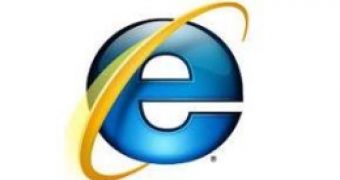Ask not what Internet Explorer 8 will do for you, but what you can, and will have to do for Internet Explorer 8. This because IE8 will not be tailored to the existing Internet. Not even by a long shot. In fact, just the opposite, Microsoft expects the entire world wide web to adapt to Internet Explorer 8. In the making throughput 2007, IE8's initial development was focused on introducing advanced support for web standards and interoperability, and the work culminated with the browser passing the Acid2 test in December 2007.
"IE8 has been significantly enhanced, and was designed with great support for current Internet standards. This is evidenced by the fact that even in its first beta, IE8 correctly renders the popular test known as 'Acid2,' which was created by the Web community to promote real-world interoperability," said Ray Ozzie, Microsoft chief software architect. "Our initial plan had been to use IE7-compatible behavior as the default setting for IE8, to minimize potential impact on the world's existing Web sites. We have now decided to make our most current standards-based mode the default in IE8."
With Internet Explorer 8, Microsoft essentially has a complex problem to solve. Advance interoperability with web standards as a top priority, while at the same time not breaking the web. And with browser users still running IE6 and IE7 at the time of IE8's release, the latest iteration of the browser is bound to create problems rendering websites that were specifically designed for previous versions of Internet Explorer. This is why Microsoft built IE8 with no less than three content-rendering modes.
The move is designed to bring to the table support for both modern Web standards interpretations, but also to continue to offer compatibility with existent websites developed for IE6 and IE7. The three rendering modes of Internet Explorer 8 were set up to permit web developers to tailor their websites either to the IE6's rendering mode, to IE7's, or to IE8's full support standards implementation. Initially, the default rendering mode of IE8 was focused on IE7 standards compatibility. This is no longer the case. Microsoft announced that Internet Explorer 8 will feature standards-based rendering as the default mode. This means that unless specified otherwise all websites will be rendered in the IE8 standards mode.
"This is obviously a complex issue, with important considerations on both sides," Ozzie said. "On one hand, there are literally billions of Web pages designed to render on previous browser versions, including many sites that are no longer actively managed. On the other hand, there is a concrete benefit to Web designers if all vendors give priority to interoperability around commonly accepted standards as they evolve. After weighing these very legitimate concerns, we have decided to give top priority to support for these new Web standards. In keeping with the commitment we made in our Interoperability Principles of being even more transparent in how we support standards in our products, we will work with content publishers to ensure they fully understand the steps we are taking and will encourage them to use this beta period to update their sites to transition to the more current Web standards supported by IE8."
What does this mean? It means that Internet Explorer 8 will, to an extent, break the web. Some of the websites designed for IE6 or IE7 will not be rendered correctly in IE8. Microsoft has announced that it plans to help both web and content developers to introduce support for Internet Explorer 8. To a higher or a lesser degree, the Redmond company expects IE8 to generate a standards behavior transition.
"Long term, we believe this is the right thing for the web. Shorter term, leading up not just to IE8's release but broader IE8 adoption, this choice creates a clear call to action to site developers to make sure their web content works well in IE. This topic is one of many things we'll talk about with respect to IE8 at MIX this week," Dean Hachamovitch, General Manager Internet Explorer.

 14 DAY TRIAL //
14 DAY TRIAL //